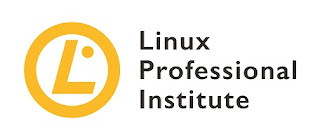I just obtained another certification (officially), which joins the numerous unofficial certificates that I earned through corporate training courses. Whenever I go through this experience I have to wrestle with the justification of the certificate process. Is it really worth it? What does it prove?
Originally posted on LinkedIn on February 16, 2016, this article is part of the Lessons Learned series.
The IT industry is a bit unique in that it is one of the few professions without a true, terminating degree. In fact, it can be argued that a college degree is practically meaningless. I am sixty years old, with a Master of Science degree, yet I am still asked about or told by interviewers that I lack this or that certificate. And in the places I work, there is constant activity in advancing our IT knowledge as well as obtaining more certificates.
I’ll be frank – it wears on you. It is a bit frustrating. The constant pressure to get more training elicits a response from being grudgingly understood to outright age discrimination. At what point during your professional development is your base of knowledge sufficient? When does experience matter? What exactly are you looking for when you expect a person to “have a certificate?”
I have been on both ends of the certificate debate. As a job applicant, it is very frustrating to see a job posting where a certificate is required when you can practically write the book on the subject. Folks will then say, “So why not just take the test and get your certificate?” Money, time, your ever-expanding base of knowledge and experience, and the fact that it is not noticed until you are applying for another job? Or is it because 50% or more of a certificate involves esoteric phraseology that you will never use in a meaningful fashion in the workplace?
As a training planner, I see certificates as valuable tools for employee development. I recently worked on a Linux administration team. Like any team in the IT business, we each came to the table with a different pool of knowledge. Developing training that meets an industry standard helps articulate corporate objectives with professional standards and provides a tool for measuring knowledge. This same information can be directed into operation guides and other technical documentation. Since internal training involves a diversion of an employee’s time from their primary assignments, and courses usually cost money, training development should include an evaluation of the relevance of a certificate.
As an educator I began to respect the efforts of such groups like the Linux Professional Institute and COMPTIA in providing structure to training. I used those standards for developing undergraduate and graduate courses. Students were able to take advantage of this consistency by expanding their education into certificate-specific courses and testing. As an instructor I was able to engage my peers into meaningful discussions on what needed to be taught and the significance of various industry standards.
How Do IT Certificates Affect the IT Industry?
Age discrimination is the most obvious aspect of certification. At some point, the IT business needs to grow up and realize that experience trumps certification. Certificates are, alas, faddish. They are as faddish as the fickle technology they are based on. In the 1990’s, everybody had to be Novell certified. Then there were the first wave of Microsoft certificates. Security finally settled down enough to have some consistency in training standards. Then there is the system development – ITIL / Cloud Essentials evolution of multiple terms for the same thing. Get serious – a certificate is a moving target.

As an older person, to have someone say you lack a certificate is both humorous and offensive. It’s funny because I know that four years ago nobody really gave a darn. Now such-n-such is a big deal. Or, like with Microsoft, it re-invents the wheel so your certificate becomes “obsolete.” It is offensive because it devalues your knowledge and experience, the lifetime of investment in yourself. In essence, hiring practices based on certificates favors the young or the lucky.
Respect the college and graduate degrees. The Master of Science degree I have in economics, to this day, trumps any paltry certificate that followed for IT. You may be thinking, “Economics? Are you serious? Three things I have observed of IT people in the past thirty years: inability to organize large volumes of information, inability to qualify information, and the inability to write. These weaknesses have been most glaringly obvious in the area of IT security. I come across economists in the IT business all the time. They excel at grasping new information, seeing the big picture and communicating.
Certificates are great tools for employee development. Note the word “employee”. Certificates can be discriminatory and can misdirect your focus in hiring, but they can be very positive for your employees. Certificates can provide professional standards. This translates to specific knowledge-objectives that you want for your employees. Pay for their training and testing. Integrate certificate attainment into their professional evaluations.
If you can’t pay for certificate training, then should you require it? This is an important question to ask. Hospitals usually do not pay for the education of registered nurses. Civil engineers pay for their own degrees. Employers do not pay for those degrees because they are terminating degrees that define their profession. If you expect job applicants to pay for a CISSP, then would you view a CISSP gained in 1995 adequate? If so – a CISSP is a terminating degree. (Anyone in IT security knows that is a questionable notion but a CISSP is the equivalent of an MS Degree.) An MCSE is an even better example. If a prospective employee is supposed to invest in this certificate themselves, would you feel comfortable hiring someone who got it in 1995? Get serious – do you really expect IT professionals to re-invest thousands of dollars in education every five years just so they can keep their MCSE current?
Match certificate standards with internal professional standards. Understand what it is you, as an employer, are wishing to achieve with a certificate. CISSP, for example, covers everything from corporate organization to the locks on the door in the computer center. Does it make sense to require that the technician checking the A/C in the computer center have a CISSP? Seems ludicrous, but I encountered a position that required a CISSP for a purchasing agent. A bit odd.
What’s to Be Gained?
As an employer:
- Maximize your hiring options – look at experience, not just paper credentials
- Be aware of the discriminatory aspects of certification – again, weigh experience versus trendy educational standards
- Evaluate longevity of a certificate – value terminating degrees, discern trendy or changing criteria from long term valued credentials
- Focus on internal employee development – use certification to strengthen your work force
- Focus on industry standards – use certification to develop and strengthen industry standards in your organization
As an employee:
- Face it – you may have to pay for certification. Budget self-training.
- Take advantage of online sites like UCertify
- Train as-you-go – strengthen your knowledge base in the specific areas you work in
- Look ahead – what is your next step? Take training in areas you wish to advance.
- Endeavor to pursue certifications with long-term value
Reflection
Updated May 3, 2023
I originally posted this article in 2016. It is amazing how the discussion over the value of post-secondary education has erupted in the past seven years. Certification training is one of the reasons why a four year college degree is being questioned. Certification courses are usually skill-specific, can be customized to fit into both the personal goals of the employee and the performance objectives of the employer. They can be less expensive and much of this knowledge can be obtained at no cost through streaming media.
As an older person, I found certificate courses burdensome and generally disruptive except for the content that related to my work. I alluded above to the latent age discrimination I encountered. It is a bit ironic that in my testing on Linux, I passed advanced courses but could not pass the basic courses. The reason was simple. Advanced courses applied to what I did every day. Basic courses had a pile of rote knowledge. Memorizing pointless details gets exceptionally difficult as you age. Fortunately, my supervisor knew that what mattered was whether I did the job.
The advancement of social media is no small thing. As a former university instructor, I have found the explosion of educational material on YouTube to be amazing. Who would have thought you could go through a course from MIT without even paying for it? The ability to find specific instruction material that is demonstrated is fantastic. In a sense, it plays against the need for certificates. An employer only needs to know if an employee has a willingness and ability to learn, and then use that knowledge to achieve business objectives.
© Copyright 2016 to Eric Niewoehner

